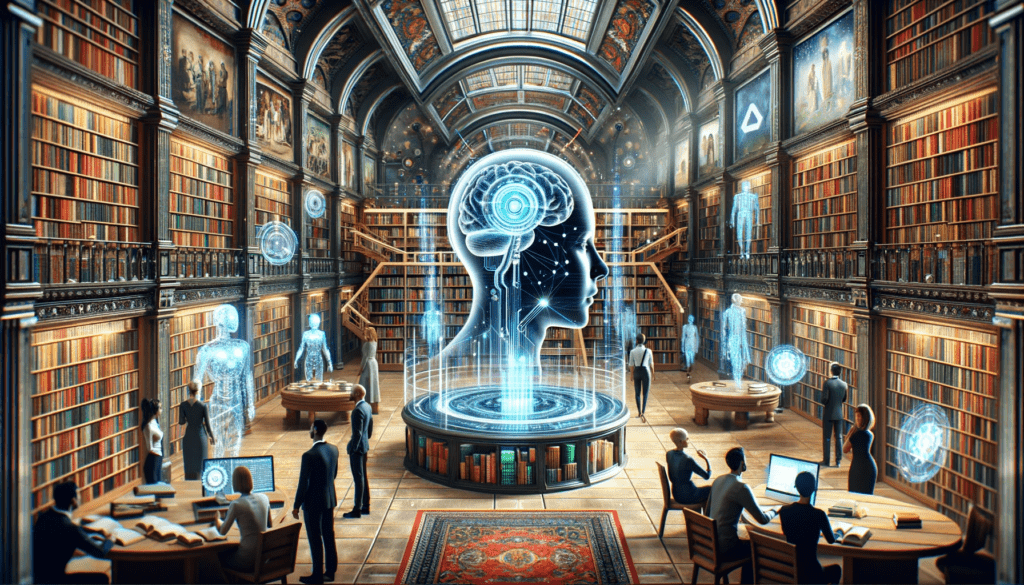The integration of artificial intelligence (AI) into literature is one of the most fascinating developments in the world of writing. It prompts a significant question: Is AI here to replace human writers, or to augment and enrich their creative processes?
In this exploration, we’ll dive into how AI is reshaping the literary landscape, its limitations, and the burgeoning synergy between human ingenuity and machine intelligence.
AI’s involvement in literature is a testament to technological progress, but it’s important to recognize its capabilities and inherent limitations.
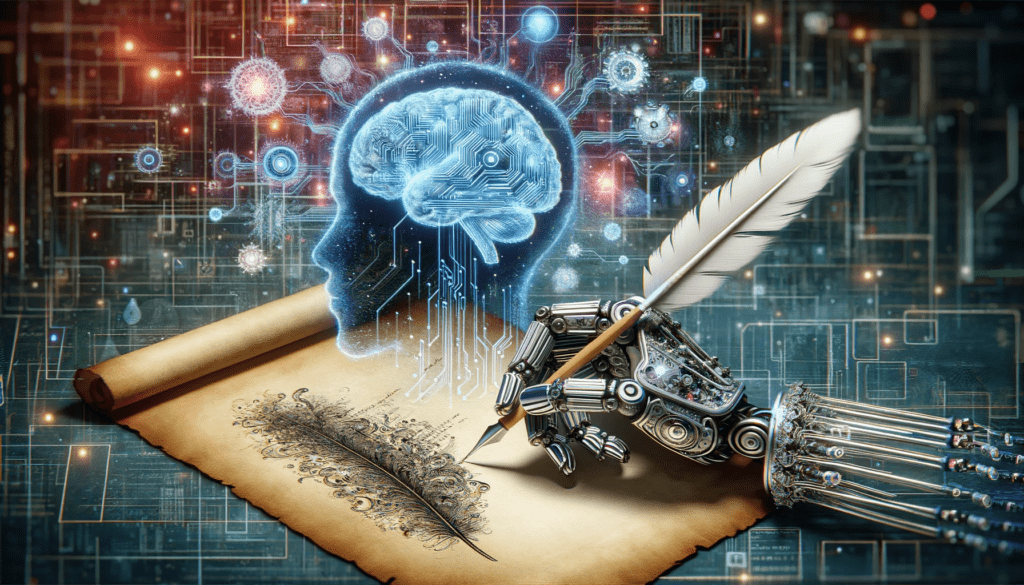
Emotional Depth and Nuance: The Human Element
AI’s major limitation in literature is its inability to truly replicate the emotional depth and nuanced understanding that human writers bring to their work. AI-generated texts often lack the emotional richness and authenticity that stem from genuine human experiences and insights.
This gap is evident in AI’s struggle to produce narratives that deeply resonate with the complexities of human emotions and experiences.
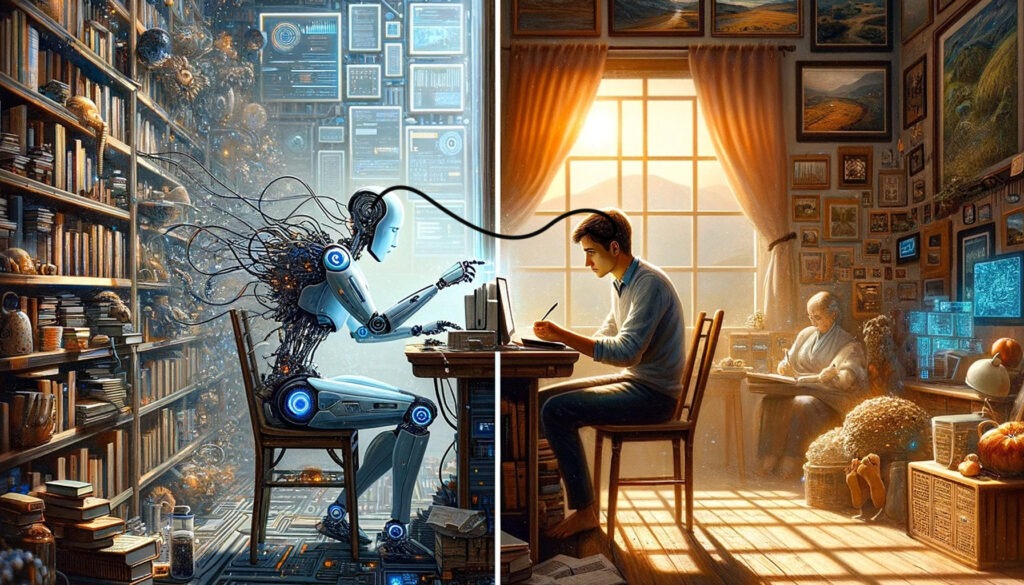
Cultural Context and Creativity: AI’s Shortcomings
Another area where AI falls short is in its understanding of cultural context and creative originality. While AI can mimic certain styles and genres, it often lacks the ability to grasp and convey the subtleties of diverse cultural narratives and contexts.
This shortcoming is apparent in AI’s difficulty in creating stories that truly reflect the richness and diversity of human cultures.
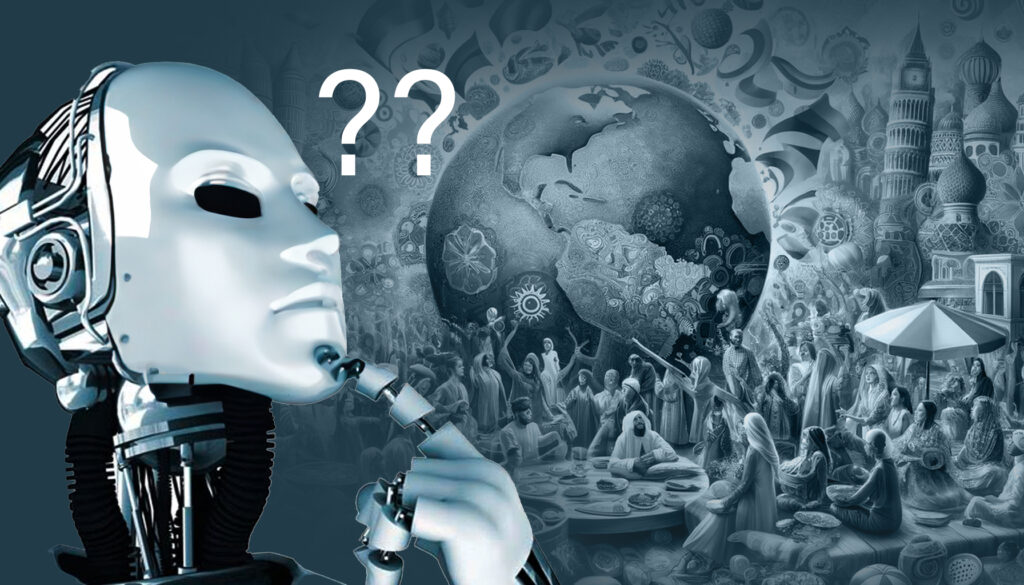
Some Examples of AI in Literature
1. AI-Assisted Literary Projects:
For instance, the novel “Frankenstein AI,” a project that reimagines Mary Shelley’s classic through an AI lens, demonstrates how AI can be used to reinterpret and reinvent classic literature while maintaining the narrative’s core themes and emotions.
2. AI-Driven Poetry:
AI has also ventured into poetry, with projects like “Deep-speare,” a program designed to create Shakespearean-style sonnets.
While the poems respect the structural form, they often lack the emotional depth and thematic complexity of Shakespeare’s work.
3. Interactive Fiction:
AI has been used to create interactive fiction experiences, such as “AI Dungeon,” which crafts unique, on-the-fly narratives based on user inputs.
While these narratives are engaging, they often lack the cohesiveness and depth of traditional storytelling crafted by human authors.
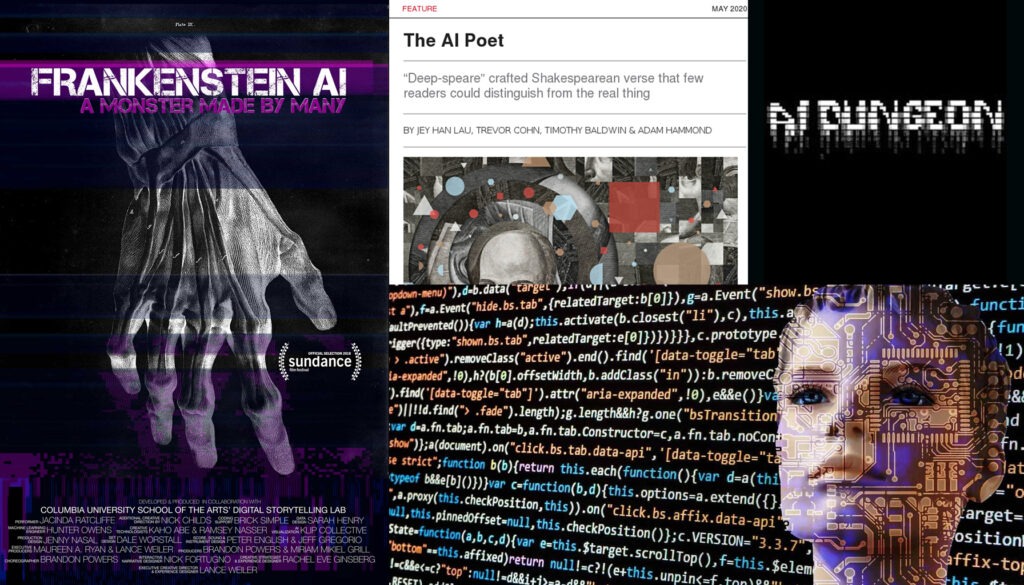
The Potential of Human-AI Collaboration
Viewing AI as a tool for collaboration rather than a replacement for human creativity opens up new possibilities in literature.
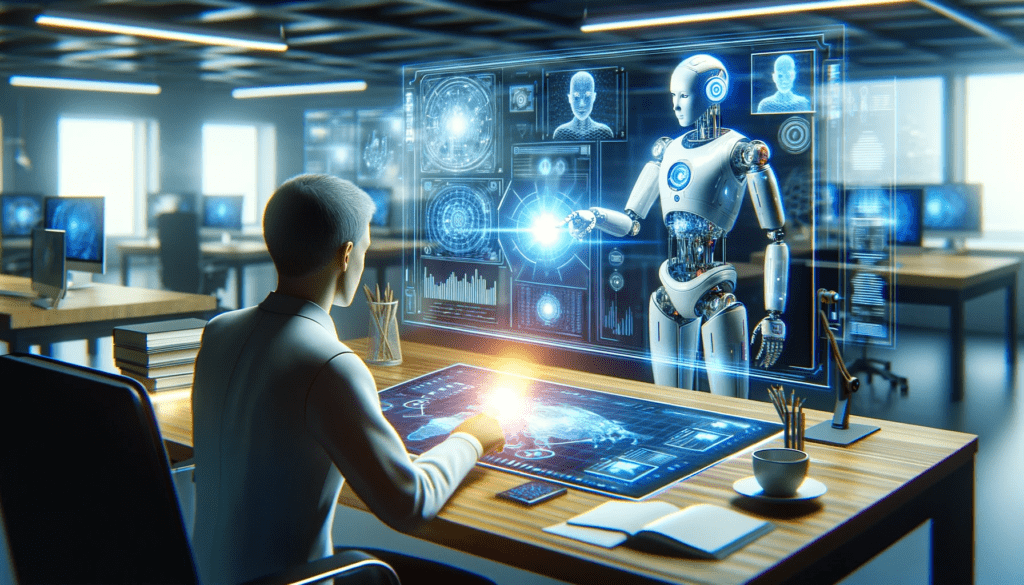
- Augmenting the Creative Process
AI can serve as a creative aid, offering novel perspectives, aiding in overcoming writer’s block, and suggesting narrative possibilities. This collaboration can lead to richer, more diverse storytelling, combining human creativity with AI’s computational power.
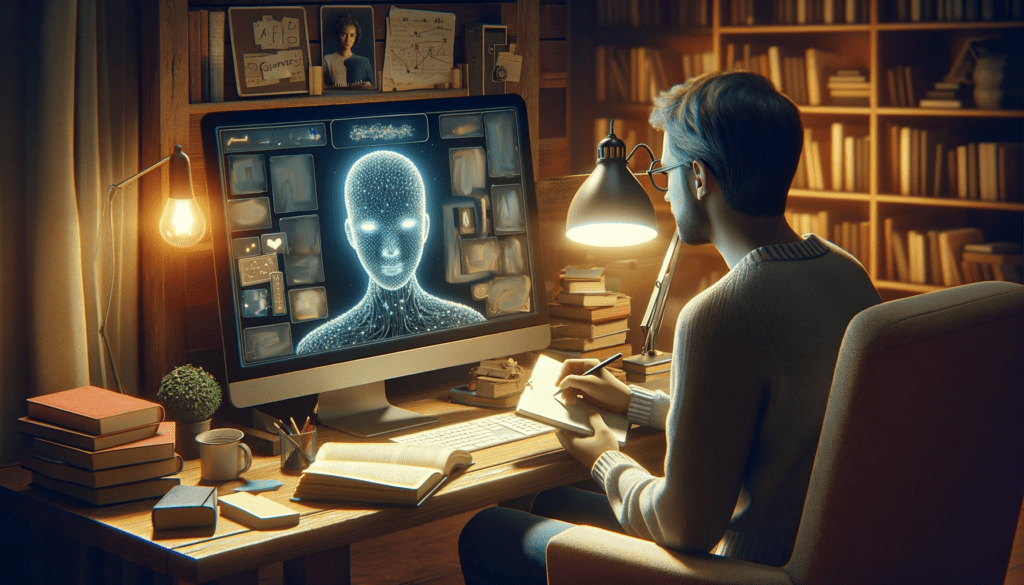
2. Efficiency in Writing and Editing
AI can handle repetitive or analytical tasks in writing, such as editing for grammar or conducting research, allowing writers to devote more time to the creative aspects of their work. This collaboration can streamline the writing process, enhancing productivity and focus.
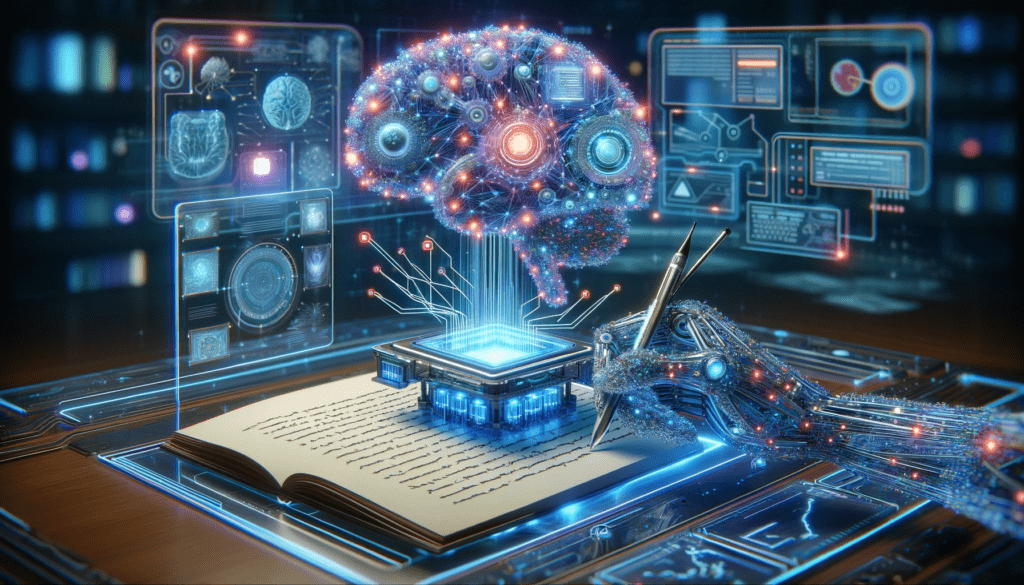
3. Expanding Narrative Possibilities
The amalgamation of human and AI creativity can lead to the development of new literary genres and narrative techniques. AI’s data processing capabilities can assist writers in exploring intricate narrative structures or themes that might be challenging to address alone.
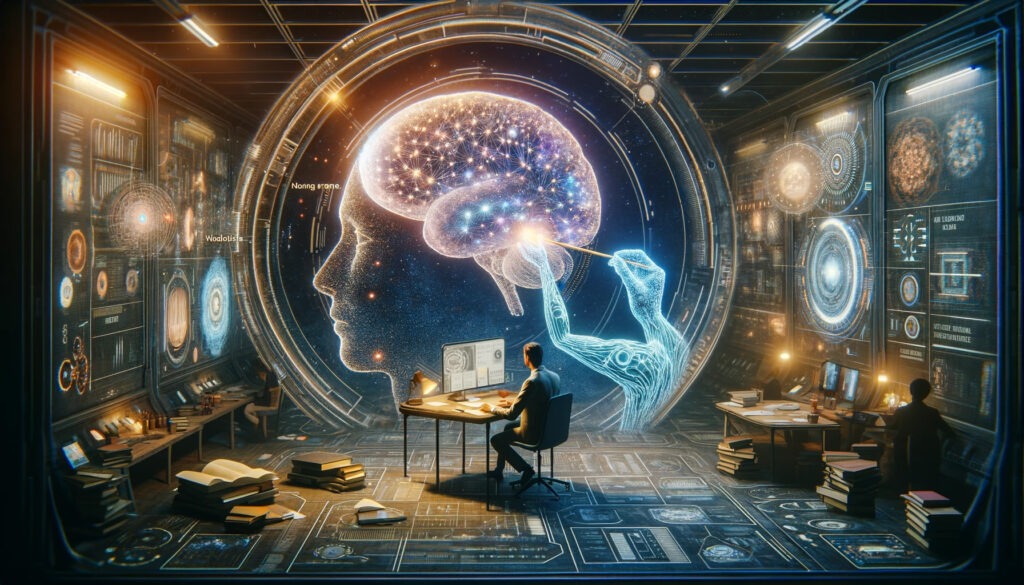
Looking Ahead: The Future of AI in Literature
The future of literature with AI promises a landscape where human creativity and AI’s capabilities complement each other. This synergy can pave the way for more innovative, diverse, and enriched literary works, where the emotional and creative strengths of human authors are enhanced by AI’s efficiency and analytical prowess.
AI in literature represents not the end of human authorship, but a new chapter in creative collaboration.
While AI has limitations, especially in emotional depth and original creativity, its role as a collaborative tool can lead to ground-breaking developments in the world of literature.
How do you perceive the role of AI in the future of literature?
Do you think AI can enhance the creative process of human authors, or will it remain limited in its ability to replicate the emotional depth of human writing? Share your thoughts and join the conversation below!
